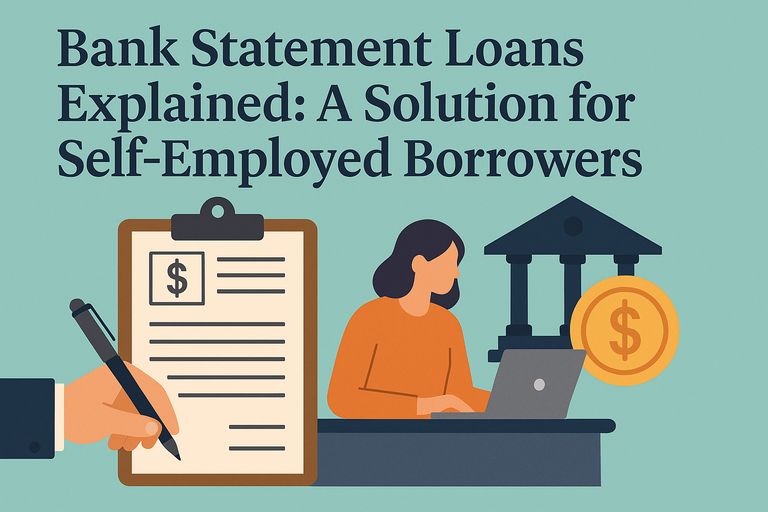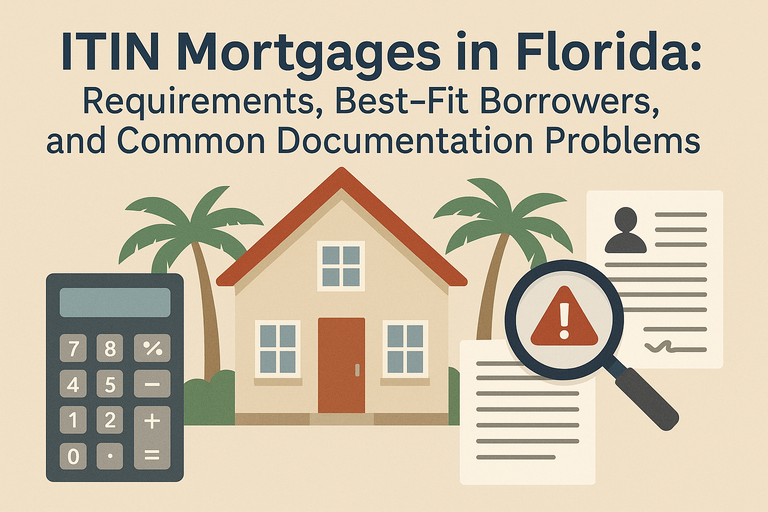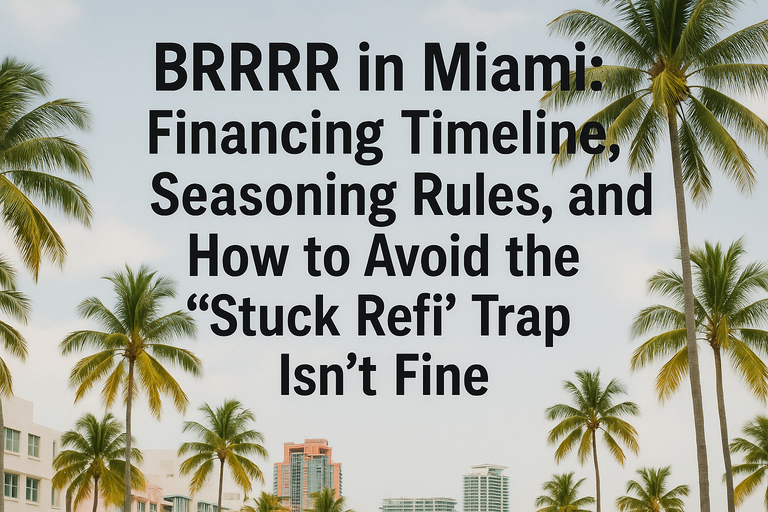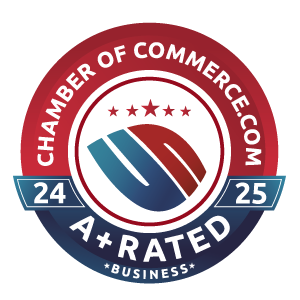For many self-employed professionals, proving income through traditional means like W-2s and pay stubs simply isn’t possible. That’s where bank statement loans come in — a flexible mortgage option designed specifically for business owners, freelancers, and entrepreneurs who earn income differently. In this guide, we’ll explain how bank statement loans work, their benefits, and how to qualify in Florida’s competitive housing market.
What Is a Bank Statement Loan?
A bank statement loan allows self-employed borrowers to use their personal or business bank statements to verify income instead of tax returns. Rather than focusing on taxable income—which can appear low due to business deductions—lenders analyze your actual cash flow. Typically, lenders review 12 to 24 months of statements to calculate your average monthly income.
This loan type is ideal for small business owners, independent contractors, and gig workers who have strong revenue but might not fit traditional mortgage requirements.
Who Qualifies for Bank Statement Loans?
To qualify, you must be self-employed for at least two years. You’ll need to provide:
-
12–24 months of personal or business bank statements
-
Business license or proof of ownership
-
A minimum credit score of 620–660
-
A down payment (usually 10%–20%)
Lenders will evaluate your income consistency and deposit trends. The stronger your cash flow, the more likely you are to qualify for competitive rates.
Advantages of Bank Statement Loans
Bank statement loans offer multiple advantages for self-employed borrowers:
-
No tax returns required: Avoid the limitations of reported net income.
-
Flexible income calculation: Lenders use deposits, not taxable income.
-
Higher loan limits: Perfect for those buying luxury homes or investing in Florida’s booming real estate market.
-
Available for primary, secondary, or investment homes.
These loans are especially popular in cities like Miami, Tampa, Orlando, and Jacksonville, where self-employed professionals make up a significant portion of the workforce.
Typical Terms and Rates
Bank statement loan rates are slightly higher than conventional mortgages, usually by 0.25%–0.75%. However, with good credit and strong income documentation, borrowers can still access very competitive rates. Working with an experienced Florida mortgage broker—like My Miami Mortgage Broker—helps you compare multiple lenders and find the lowest rate available.
How to Apply for a Bank Statement Mortgage
-
Gather 12–24 months of statements: Choose the account showing the most consistent income.
-
Meet with a mortgage broker: They’ll review your statements and determine qualifying income.
-
Get preapproved: Know your buying power before you shop for homes.
-
Submit your application: Provide additional documents like ID, credit report, and business verification.
-
Close your loan: Once approved, you can move into your new Florida home.
Ideal for Florida’s Self-Employed Market
Florida’s thriving economy attracts entrepreneurs and independent professionals across industries—from real estate and hospitality to tech startups. Bank statement mortgages give these professionals a fair path to homeownership without penalizing them for tax write-offs.
Final Thoughts
If you’re self-employed and struggling to qualify for a traditional loan, a bank statement mortgage could be the perfect solution. With flexible income verification and competitive rates, this option opens the door to homeownership for thousands of Floridians. Contact My Miami Mortgage Broker to explore your eligibility and start your journey toward owning a home on your terms.






